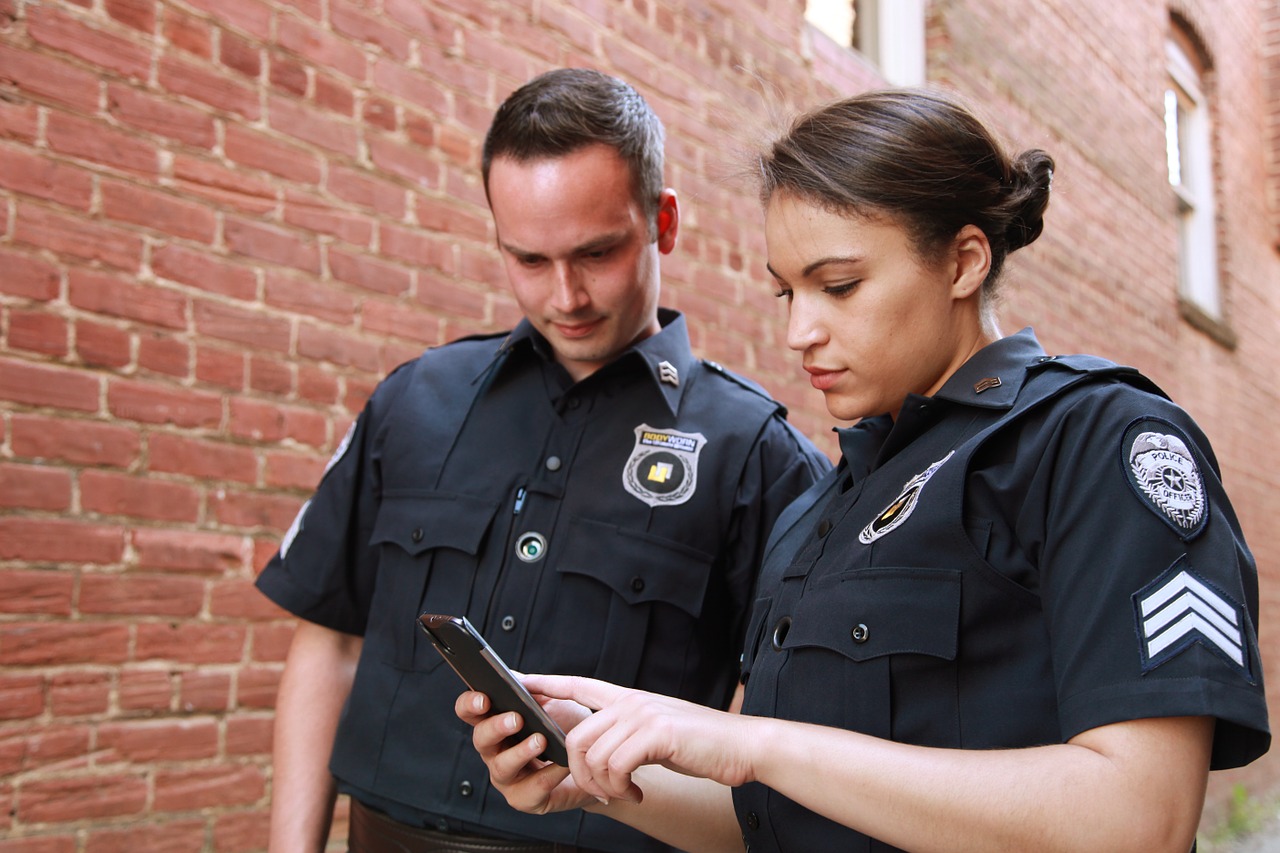By Kelly Davis.
When should an officer be allowed to review body camera footage? Before writing an incident report or after?
The San Diego Sheriff’s Department is set to start a 90-day test period for body-worn cameras next month. To prepare for the trial run, the department formulated a set of policies for the use of the cameras and the footage they capture. Last fall, the county’s Citizens’ Law Enforcement Review Board, an independent oversight body that investigates complaints against county sheriff’s deputies and probation officers, reviewed the proposed policies and suggested three changes.
At the top of the list: Don’t allow deputies to review camera footage before writing reports.
CLERB Executive Director Patrick Hunter would only say that the recommendation was the result of a discussion among board members after a Sheriff’s Department presentation on body cameras.
According to a Washington Post investigation, it’s the norm in departments nationwide to allow officers to review body camera footage, though some departments limit that review to certain types of cases. The Oakland Police Department, for instance, forbids deputies involved in use-of-force incidents from reviewing footage. San Jose requires officers involved in shootings to give an initial statement before reviewing footage. In San Francisco, the police chief has discretion over whether an officer involved in a use-of-force incident can first review footage.
Transparency advocates worry that allowing officers to review the footage before writing reports or speaking to investigators could cause them to tailor their statements to the video. The officer’s memory of the event on its own is an important piece of evidence. Officers, however, say that being allowed to review footage is the only way to get the most accurate version of events.
Where a law enforcement agency stands on this issue can say a lot about why it’s using the cameras in the first place, said Brian Buchner, president of the National Association for Civilian Oversight of Law Enforcement. Are the cameras intended to be evidence-gathering tools, or is the goal to enhance public trust and officer accountability?
If it’s about evidence collection, Buchner said, then allowing officers to review video footage means more accurate reports.
“At the same time, allowing officers to view video in a use of force incident does not support better, more accurate investigations of the officer’s actions,” Buchner said. “In fact, it can potentially have the opposite effect and alter one critically important piece of evidence — the officer’s perception and what he or she knew at the time.”
Last year, San Diego Assemblywoman Shirley Weber introduced a bill that would have prohibited law enforcement officers from viewing body camera footage before writing reports. But as the bill went through the committee process, it was re-written to actually allow officers to view the footage – a complete reversal, Weber’s communications director, Joe Kocurek, told VOSD in an email last year.
“We decided not to bring it to the Assembly floor like that and parked it in the appropriations committee. The vehicle is dead, but the policy is not. We’re committed to establishing statewide guidelines for their use,” Kocurek said.
When an officer should be allowed to review video footage became an issue in the April 30, 2015, shooting death of Fridoon Nehad by San Diego Police Officer Neal Browder. Nehad, who was mentally ill, was unarmed when Browder confronted him in an alley after police received calls about a man with a knife. Though it was surveillance video that captured the shooting — Browder failed to turn on his camera — the officer was allowed to review the surveillance video before writing his report. According to documents released by attorneys representing Nehad’s family, Browder’s story changedafter he reviewed the video: He initially told investigators that Nehad wasn’t holding a weapon. Five days later, in his official statement and after reviewing the video, he said he’d seen “a metal object” in Nehad’s hand (one video angle shows Nehad twirling a pen).
The Sheriff Department’s interim policy says that “when necessary to ensure accuracy,” deputies may review footage from their own cameras, or another officer’s camera, prior to writing a report. But, “in Deputy involved shootings or situations where an investigation is being conducted,” the policy says, “the assigned investigative supervisor will determine when [body worn camera] video will be reviewed by those directly involved.”
CLERB made its recommendation in an Oct. 27 letter to Sheriff Bill Gore.
“CLERB recommends that deputies write their reports prior to reviewing any digital evidence, and then if necessary, submit supplemental or amended reports after the review,” the letter says.
The letter included two other policy recommendations: one on how long recordings are to be retained and another to memorialize in writing that CLERB investigators will get access to video footage relating to a complaint — Hunter said the board’s already received verbal assurances that they’d have access.
Hunter said CLERB has yet to receive a response but has been told that one is “forthcoming.” Sheriff’s Department spokeswoman Jan Caldwell said a response should be ready within the next two weeks, but will first need to go to the department’s body-worn camera committee and then to the sheriff before being sent to CLERB.
Kellen Russoniello, a staff attorney with the ACLU of San Diego and Imperial Counties, said the sheriff’s policy as written is better than the San Diego Police Department’s in that it gives supervisors discretion as to whether a deputy should be allowed to watch footage of a critical incident before writing a report. But, he agrees with CLERB’s recommendation.
“It could be better in that it shouldn’t be supervisor discretion,” he said. “You have to write the initial report before you review the video.”
As for body-worn cameras’ other hot-button issue — whether video will be made public — the sheriff’s interim policy says public release is prohibited “unless approved by the sheriff or his designee.”
[divider] [/divider]





